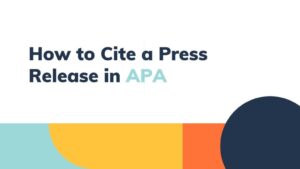Soy is a unique food widely studied for its diverse health and nutritional benefits. These legumes are particularly high in protein and dietary fiber, each of which plays a significant role in the body.
Protein serves as the foundation for the growth and development of all tissues in the body. It’s also involved in energy metabolism, weight management, and the absorption of other essential nutrients.
On its part, dietary fiber aids digestion by nourishing the gut microbiome while also bulking up the stool. Fiber also works synergistically with protein to prevent unintentional weight loss by inducing the sensations of fullness for much longer between meals.
Besides protein and dietary fiber, soy also abounds in certain compounds known to promote normal endocrine activities. That makes it a welcome inclusion into the diets of women battling medical issues caused by hormonal imbalance.
This article looks at the role of soy as a natural solution for hormonal problems in women.

Table of Contents
ToggleCompounds in Soy That Affect Endocrine Performance
Numerous studies have shown that soybeans are high in many potentially therapeutic compounds. A decent number of these findings are well captured in U.S. Soy latest articles and other similar publications.
Soy’s effects on the endocrine system are mostly due to its high concentration of isoflavones.
Isoflavones are a type of plant estrogen, also known as phytoestrogen, which presents similar physiological effects as human estrogen. These compounds influence the performance of the hormone estrogen by interacting with estrogen receptors.
Can Soybeans Cause Endocrine Disturbances?
Soybeans are high in isoflavones, compounds known to produce estrogenic effects in the body. An increase in estrogen sensitivity is cited as a major risk factor for hormone-sensitive cancer in women, such as breast cancer, especially among postmenopausal women.
However, there’s no cause for alarm. Studies conducted in human and mice specimens have yet to establish a causal relationship between the high levels of isoflavones in soybeans and increased risks of breast cancer or other hormone-induced ailments. That’s because isoflavones generally function as weak estrogens.
When consumed, the isoflavones in soybeans readily bind to various estrogen receptors in the body. These interactions cause either weak estrogenic or anti-estrogenic activity. Simply put, isoflavones will likely avert the harmful effects of high estrogen levels in the body as opposed to increasing the levels of this hormone.
Soy is particularly high in two isoflavones responsible for its inhibitory effects on high estrogen levels. These include genistein and daidzein.

What Does Research Say?
Some research has linked the continued intake of phytoestrogens, such as isoflavones, to a decreased risk of breast cancer. That’s especially if such compounds are consumed regularly during childhood.
One study investigating soy’s anti-carcinogenic properties established a close relationship between high soy intake and a decreased risk of breast cancer. This study covered different age groups, including children, adolescents, and adults. However, it emerged that soy’s anti-carcinogenic effects were more pronounced during childhood.
Many other experiments conducted on rat specimens corroborated the above findings. For instance, an experiment in one strain of rats showed that exposure to dietary soy from conception through adulthood reduced the risks of mammary tumors in adult animals by up to 20%.
So, integrating soybeans into your child’s diet is one of the soundest health decisions you can ever make for them. The good news is that soy comes in multiple formulations, and most of these products are incredibly easy to add to your child’s diet.
For instance, you could opt for soymilk if dealing with young babies. For teens, you might consider soy-based baked goods and other fancy soy formulations, such as tofu and tempeh. Older women have more soy-based products to experiment with, including soy isolates and edamame (immature soybeans).
Can Soy Affect Breast Cancer Recurrence In Survivors?
It’s evident that the high concentration of isoflavones in soybeans can reduce the risks of hormone-induced breast cancer in women of different age groups. But what of breast cancer survivors?
Well, breast cancer survivors can consume isoflavone-rich foods like soybeans just as those who’ve never had cancer before.
A study conducted on Asian American women previously diagnosed with breast cancer established a relationship between a high intake of dietary soy and decreased cancer recurrence. One possible inference from these findings is that soybeans don’t only prevent hormone-induced breast cancer from developing in the first place. These legumes can also reverse the damage caused by the disease.
However, women who’ve survived hormone-induced breast cancer should exercise sufficient precaution while consuming phytoestrogens. The efficacy of isoflavones at preventing the recurrence of breast cancer depends on several factors, including your age, breast cancer type, the treatment method, and the type of isoflavones consumed.
Some studies conducted on breast cancer survivors suggest that there’s no significant relationship between soy intake and subsequent breast cancer recurrence in premenopausal women. But in postmenopausal women, increased intake of soy isoflavones among breast cancer survivors can reduce breast cancer recurrence for women with certain receptor subtypes and who’ve undergone certain treatments. Isoflavones have proven more effective for women with ER+/PR+ tumors who also receive the aromatase inhibitor anastrozole.
The opposite effects have been observed in women who took tamoxifen, another aromatase inhibitor.
When it comes to soy supplementation, research has shown that high doses of genistein aids the apoptosis of cancerous cells while lower doses of this isoflavone accelerates the proliferation of the very cells. In a similar experiment, increased intake of soy phytoestrogen daidzein slightly caused cell proliferation.
That underscores the importance of carefully reading the ingredients list of all store-bought soy products to establish the specific isoflavones they contain. The conventional wisdom is to insist on natural soy products as they’re generally higher in purified isoflavones.
Are There Other Hormonal Benefits of Consuming Soybeans
Most studies investigating the therapeutic effects of soy isoflavones seem to focus on their anti-carcinogenic properties. However, the interactions between isoflavones and estrogen can produce a range of other health benefits.
Note that isoflavones do not cause a significant surge in estrogen levels despite mimicking the action of this natural hormone. And while the compounds may produce weak estrogenic or anti-estrogenic effects, they’re unlikely to reduce your estrogen to worryingly low levels either.
Therefore, soybeans may help to attenuate the symptoms caused by very high or very low estrogen levels in the body. Examples include;
- Hot flashes and night sweats
- Mood swings and irritability
- Reduced attention span
- Dry skin
- Breast tenderness
- Severe headache
Summary
Soybeans abound in isoflavones, compounds that have been extensively researched for their positive effects on endocrine activities. From guarding against breast cancer to reducing hot flashes and other menopausal symptoms, soy’s ability to regulate hormonal imbalance is truly unmatched.



















